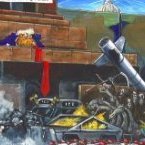Nsc Blueprint For Peace In Deep South Has Some Merits
-
Recently Browsing 0 members
- No registered users viewing this page.
-
Topics
-
-
Popular Contributors
-
-
Latest posts...
-
1
Visa Agent in Chiang Mai
You cannot renew a visa, you mean extend your permission to stay with retirement as the reason. Are you saying the current extension has ran out and you are on overstay, If not why can't you book an appointment? -
25
Ukraine is winning the war
The gas shortage is widespread in Russia's east and the more Ukraine destroys the more it spreads Don't forget the coming Flamingos too. -
356
Road Rage (Foreigner Style)
Which is illegal, So what? It is not up to you and your horn to enforce traffic laws -
25
Ukraine is winning the war
Its stalled now and has basically been a nothing risole for the last 1000 days. Putin is bluffing. The Ukrainian drone dominance on energy infrastructure is really hurting him. Russia is too big to defend against that. -
79
Americans seek escape for political reasons at record numbers
I wish all the lefties would leave -
356
-
-
Popular in The Pub



.thumb.jpg.b54783ad387f65d779e04f535fcfeee9.jpg)




(1).thumb.jpg.2a9a5717e089998d9b4fa1ecc5d60fed.jpg)


Recommended Posts
Create an account or sign in to comment
You need to be a member in order to leave a comment
Create an account
Sign up for a new account in our community. It's easy!
Register a new accountSign in
Already have an account? Sign in here.
Sign In Now